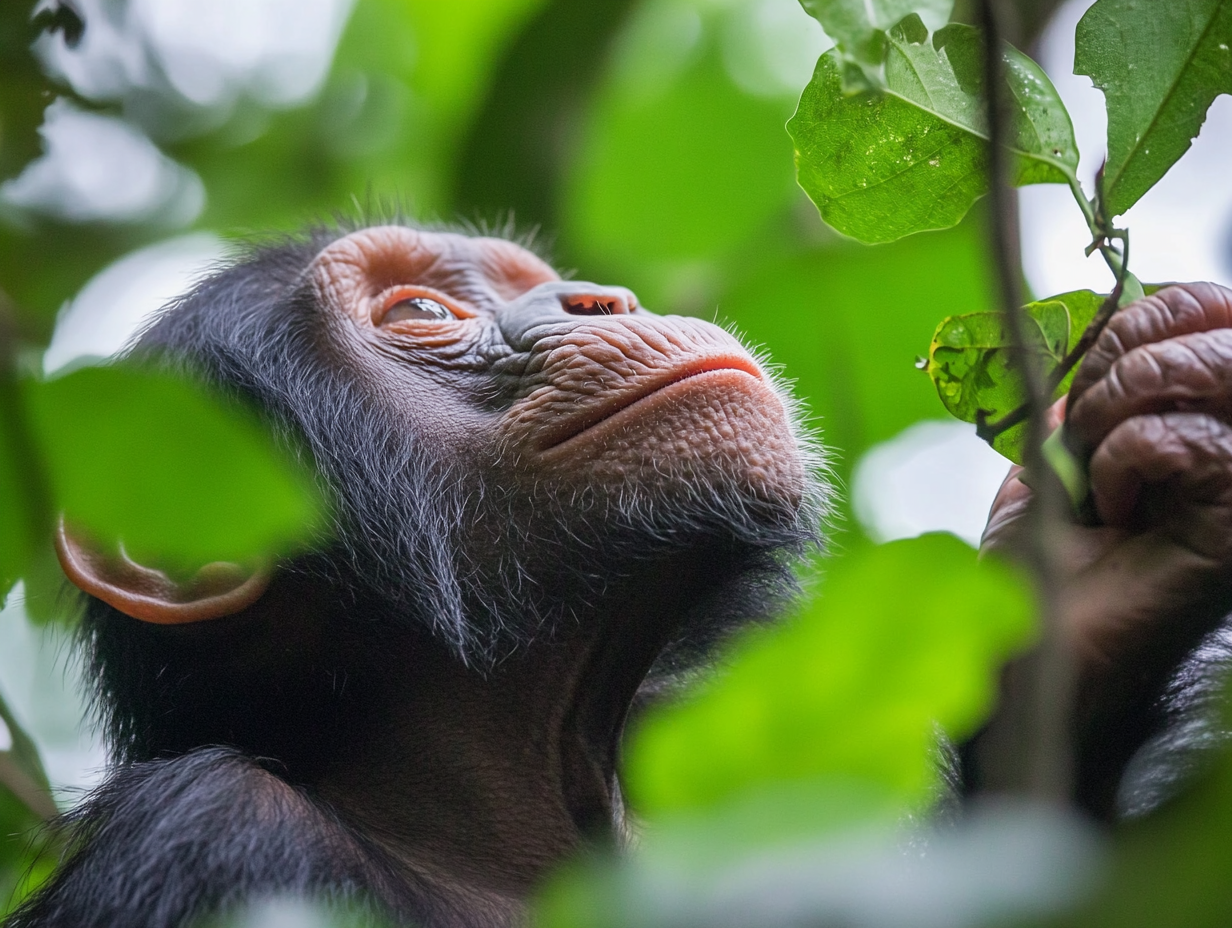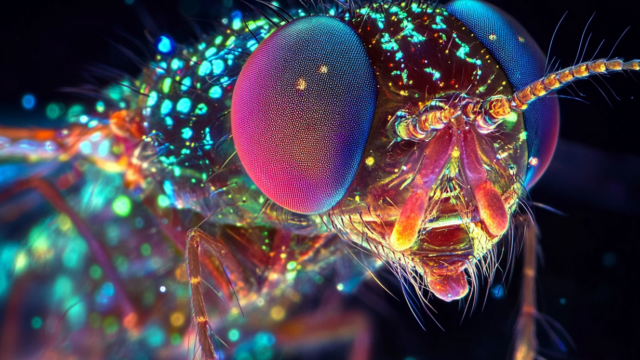【WPMの測定手順】
1. 読む前に設問を確認する
2. 時計(ストップウォッチ)を見ながら、英文を最初から最後まで読み、かかった秒数を記録する
3. 設問に解答する
4. 答え合わせをして正解数を確認する
以下の計算式でWPMを算出する
WPM = 語数 ÷ 読むのにかかった秒数 × 60 × 正解数 ÷ 設問数
※読んだ内容の理解を測定せずただ英文を読むスピードをチェックしたい場合は、WPM = 語数 ÷ 読むのにかかった秒数 × 60 まででOK。
Chimpanzees and Plant Medicine
For centuries, humans have used plants for medicinal purposes. Recent studies show that chimpanzees, our closest relatives, also possess this remarkable ability. Researchers from Oxford University observed chimpanzees in Uganda’s Budongo Central Forest Reserve when ill or injured.
The scientists documented fascinating instances of self-medication among these primates. A male chimpanzee with an injured hand sought out specific fern leaves with potential anti-inflammatory properties. Another chimpanzee, suffering from a parasitic infection, consumed cat-thorn tree bark to possibly alleviate its condition.
The research team discovered a strong link between the chimpanzees’ ailments and the medicinal properties of the plants they consumed. Analysis of plant extracts not typically part of the chimpanzees’ diet revealed that 88% contained anti-bacterial properties, while 33% exhibited anti-inflammatory qualities.
Dr. Elodie Freymann, an anthropologist involved in the study, stated, “Our findings suggest that Budongo chimpanzees consume several species with potent medicinal properties.” This groundbreaking research sheds light on chimpanzee behavior and opens up new possibilities for exploring natural remedies in human healthcare. The study may pave the way for a greater understanding of plant-based medicine and its potential applications in modern medical practices. (202 words)
☆Answer the questions☆
(1) What ability do chimpanzees share with humans according to the text?
a) Tool-making b) Language use c) Medicinal plant use d) Agriculture
(2) Where did the Oxford University researchers conduct their study?
a) Oxford, UK b) Budongo Central Forest Reserve, Uganda c) A laboratory d) Multiple locations in Africa
(3) What percentage of analyzed plant extracts contained anti-bacterial properties?
a) 33% b) 50% c) 75% d) 88%
(4) According to Dr. Freymann, what do Budongo chimpanzees consume?
a) Only fruits and vegetables b) Mainly meat c) Several species with potent medicinal properties d) Only plants without medicinal properties

【全訳】チンパンジーと植物医療
何世紀もの間、人間は薬用目的で植物を使用してきました。最近の研究では、私たちの最も近い親戚であるチンパンジーもこの注目すべき能力を持っていることが示されています。オックスフォード大学の研究者たちは、ウガンダのブドンゴ中央森林保護区で、病気やけがをしたチンパンジーの行動を観察しました。
科学者たちは、これらの霊長類の間で興味深い自己治療の事例を記録しました。手に怪我をした雄のチンパンジーが、潜在的に抗炎症作用のある特定のシダの葉を探していたのが観察されました。別のチンパンジーは、寄生虫感染に苦しんでいましたが、その状態を緩和するためにキャットソーンの木の樹皮を摂取していました。
研究チームは、チンパンジーの病気と彼らが摂取した植物の薬効の間に強い関連性を発見しました。チンパンジーの通常の食事の一部ではない植物抽出物を分析したところ、88%に抗菌性があり、33%に抗炎症性があることがわかりました。
研究に参加した人類学者のエロディ・フレイマン博士は、「私たちの発見は、ブドンゴのチンパンジーが強力な薬効のある数種の植物を摂取していることを示唆しています」と述べました。この画期的な研究は、チンパンジーの行動に光を当てるだけでなく、人間のヘルスケアにおける自然療法の探求に新たな可能性を開きます。この研究は、植物由来の医薬品とその現代医療への応用についての理解を深めるきっかけとなるかもしれません。
【Answer】
(1) c) Medicinal plant use
(2) b) Budongo Central Forest Reserve, Uganda
(3) d) 88%
(4) c) Several species with potent medicinal properties
【入試超絶頻出単語】
□ medicinal (薬用の) □ remarkable (注目に値する) □ researcher (研究者) □ observe (観察する) □ instance (事例) □ self-medication (自己治療) □ primate (霊長類) □ injury (怪我) □ potential (潜在的な) □ anti-inflammatory (抗炎症性の) □ parasite (寄生虫) □ infection (感染)
□ alleviate (軽減する) □ ailment (病気) □ extract (抽出物) □ anti-bacterial (抗菌性の) □ anthropologist (人類学者) □ groundbreaking (画期的な) □ natural remedy (自然療法) □ application (応用)







